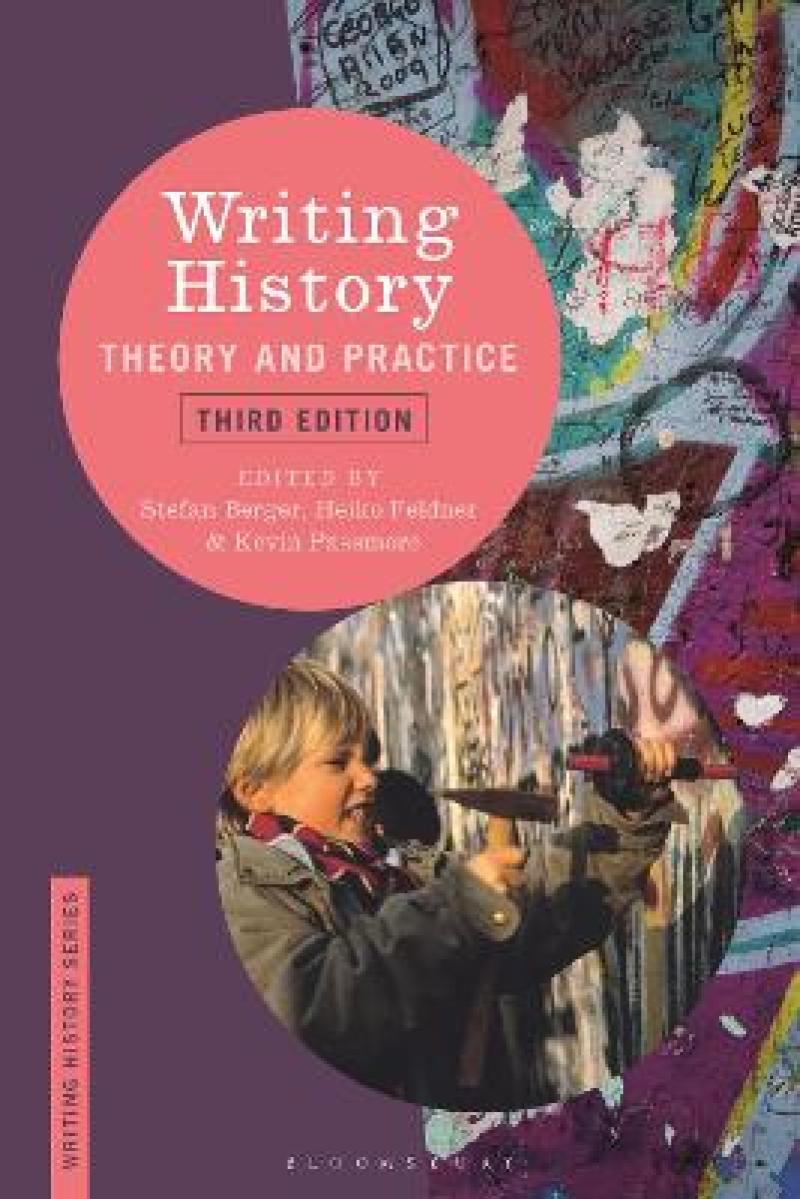Berger, Passmore and Feldner have assembled a remarkable and essential book for our times. It is at once a tour of the discipline of history and its major currents as well as a series of meditations on its future pathways. Students and scholars alike will draw enlightenment and inspiration from it.
Jeremy Adelman, Henry Charles Lea Professor of History, Princeton University, USA
A valuable resource for students seeking a solid historical framework for their own historical inquiries, the updated edition features vital trends in historiography, from animal history and cultural history to the social biographies of material culture objects. Integrating the history of the discipline into assessments of its diverse practices, the authors succeed in making both methodology and theory accessible.
Susan A. Crane, Associate Professor of History, University of Arizona, USA
<i>Writing History: Theory and Practice</i> takes a broad view, attempting to say something about most areas of historiography. It shows the imaginative ways in which different historians use various theoretical tools.
John H. Arnold, Professor of Medieval History, University of Cambridge, UK
<i>Writing History: Theory and Practice </i>was already one of the best collections of essays on historical writing. Now the third edition expands its reach while incorporating the most recent developments. Authored by a seasoned team of experts, this volume leaves few stones unturned as it considers the intellectual roots of the discipline, the engagement of historians with other fields, and the state of contemporary practice. Each of the nineteen chapters is a brilliant standalone contribution reflecting on key aspects of historical scholarship, but they also fit together remarkably well to provide a comprehensive account of Western historiography and the major turns of the twentieth and twenty-first centuries. The result is an accessible, indispensable survey of history’s complex and fascinating theoretical terrain.
J. Laurence Hare, Associate Professor of History, University of Arkansas, USA
An excellent book, now updated, which is essential for introducing advanced Master’s students to the theory and history of historical research, in an accessible format.
Ian Miller, Ulster University, UK
The third edition of Writing History provides students and teachers with a comprehensive overview of how the study of history is informed by a broader intellectual and analytical framework, exploring the emergence and development of history as a discipline and the major theoretical developments that have informed historical writing. Instead of focusing on theory, this book offers succinct explanations of key concepts that illuminate the study of history and practical writing, and demonstrates the ways they have informed practical work.
This fully revised new edition comprehensively rewrites and updates original chapters but also includes new features such as:
- new chapters on postcolonial, environmental and transnational history;
- chapter introductions setting them within the context of historiography;
- a new substantive introduction from the editors, providing a useful road-map for students;
- an expanded glossary.
In its new incarnation Writing History is, more than ever, an invaluable introduction to the central debates that have shaped history.
Notes on Contributors
Preface
Introduction to the Third Edition - Stefan Berger, Heiko Feldner and Kevin Passmore (Ruhr-Universität Bochum, Germany, and Cardiff University, UK)
Part One: Rankeanism and the Professionalization of History
1 The New Scientificity in Historical Writing around 1800 - Heiko Feldner (Cardiff University, UK)
2 The Rankean Tradition in British Historiography, 1840-1950 - John Warren (Birmingham City University, UK)
3 The Professionalization and Institutionalization of History - Peter Lambert (Aberyswyth University, UK)
Part Two: The Social Turn
4 Marxist Historiography - Geoff Eley (University of Michigan, Ann Arbor, USA)
5 History and the Social Sciences - John Harvey (St Cloud State University, USA)
6 The Annales - Matthias Middell (University of Leipzig, Germany)
Part Three: The Cultural Turn
7 Poststructuralist and Linguistic Methods- Kevin Passmore (Cardiff University, UK)
8 From Women’s History to Gender History- Laura Lee Downs (École des Hautes Études en Sciences Sociales, France)
9 Postcolonial History- Gavin Murray-Miller (Cardiff University, UK)
Part Four: The Eclecticism of Contemporary Historical Writing
10 Psychoanalysis and Psychohistorical Methods- Garthine Walker with Tracey Loughran (Cardiff University, UK)
11 Historical Anthropology- Jakob Tanner (University of Zurich, Switzerland)
12 Environmental and Animal History- Lloyd Price (Cardiff University, UK)
13 History and Material Culture- Anne Gerritsen and Giorgio Riello (University of Warwick, UK)
14 Comparative and Transnational History- Stefan Berger (Ruhr-Universität Bochum, Germany)
Part Five: Some Case Studies
15 Political History- Jon Lawrence and Alexandre Campsie (University of Cambridge, UK)
16 Social History- Thomas Welskopp (Bielefeld University, Germany)
17 Cultural History- Tracey Loughran (Cardiff University, UK)
18 Economic History- Pat Hudson (Cardiff University, UK)
19 Intellectual History/History of Ideas- Beverly Southgate (University of Hertfordshire, UK)
The Writing History series publishes accessible overviews of particular fields in history, focusing on the practical application of theory in historical writing. Books in the series succinctly explain central concepts to demonstrate the ways in which they have informed effective historical writing. They analyse key historical texts and their producers within their institutional arrangement, and as part of a wider social discourse. The series' holistic approach means students benefit from an enhanced understanding of how to negotiate the contours of successful historical writing.
Series editors: Stefan Berger (Ruhr University Bochum, Germany), Heiko Feldner (Cardiff University, UK) and Kevin Passmore (Cardiff University, UK)
Produktdetaljer
Biografisk notat
Stefan Berger is Professor of Social History and Director of the Institute of Social Movements and the House for the History of the Ruhr at the Ruhr University Bochum, Germany.
Heiko Feldner is Senior Lecturer in Modern German History at Cardiff University, UK.
Kevin Passmore is Professor of History at Cardiff University, UK.
